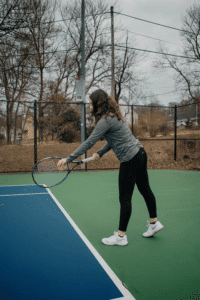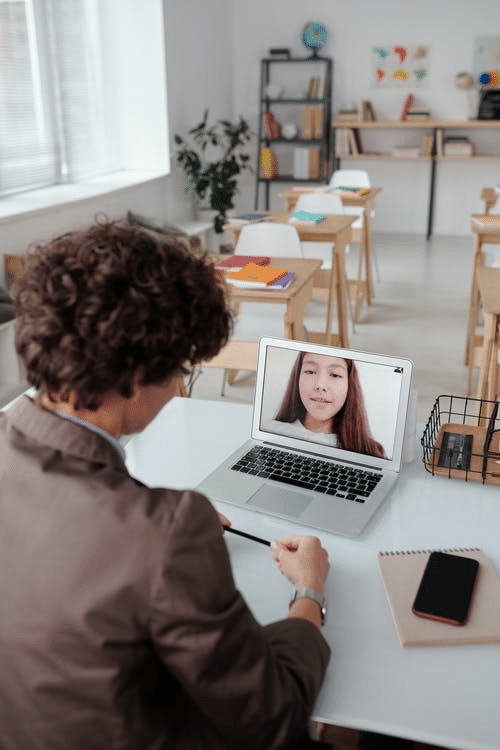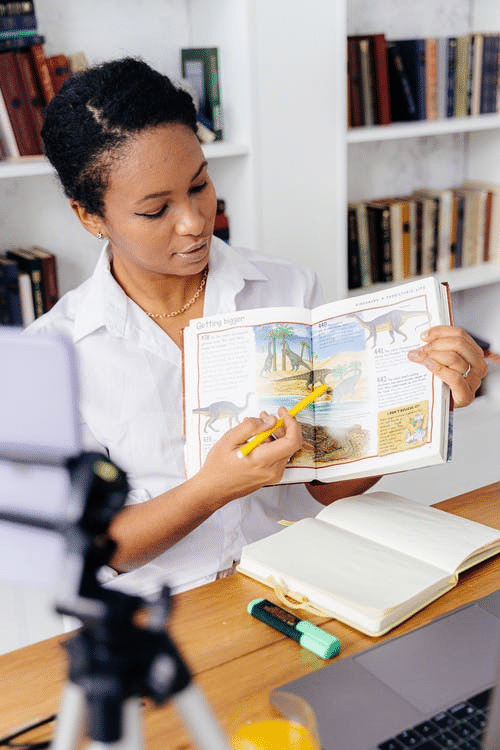According to research, there has been an astounding 450% increase in student mental health deterioration in the UK. As students struggle with a range of mental health disorders—including stress, anxiety, and depression—their academic growth is also being affected.
Unfortunately, many signs of distress are overlooked by the large majority of schools in the UK. As a result, students continue to struggle silently. Their personal and social growth are also affected. It’s important to note that poor mental health isn’t just common among teenage students. In fact, it’s also becoming increasingly common among younger students, often as young as 8.
As a parent, you should have a strong focus on helping your child enjoy a healthy school-life balance. Students should never be overworked. The right balance can help them secure top grades and keep their mental health on track. Yes, this is possible. Unfortunately, many parents and teachers believe that students must study tirelessly to achieve academic excellence.
At Cambridge Home School, we’re focused on shattering this perception. As one of the top online schools in UK, we have an excellent track record. In June 2021, 86% of our IGCSE students secured A*s and As in their target subjects. 83% of our A Level students secured two As and a B or higher, as requested by top universities. Moreover, all students who applied received offers from some of the best universities across the globe.
It goes without saying that we have a strong focus on academic excellence, and our track record indicates this. However, we don’t believe in tiring students out by solely doubling down on academics.
Since our inception in 2002, we’ve been closely studying student performance. Our education specialists and teachers have determined that students perform best when they enjoy a healthy school-life balance. This risk of burnout is reduced, which helps students feel excited about different aspects of their life: academics, socialisation, skill-building, sports, and so much more.
Our claims have been confirmed through research time and time again. In this blog, we’ll help you understand how we focus on helping students balance their academics and extracurricular activities. While this sounds ideal on paper, it can be tricky to achieve in practice. So how do we go about this? Continue reading for a closer look at five ways we achieve this balance.
1. Structuring Focused Classes

At Cambridge Home School, we have a strong focus on keeping our classroom size small. A high student-teacher ratio can negatively affect learning outcomes. When 20+ students are taught by one teacher, classroom engagement significantly goes down. The teacher is unable to provide one-on-one attention to each student, which affects their learning trajectory.
It’s important to understand that each student has a very unique learning personality. They have certain academic strengths and weaknesses that must be meticulously understood by their teacher. Using this knowledge, teachers can customise their teaching approach. As a result, each student is provided an individualised learning experience. Their problems are identified and addressed, not swept under the rug.
We use this approach at Cambridge Home School. Each classroom comprises 8–10 students, no more. This helps our teachers deliver focused lessons.
Let’s understand how this helps students achieve a healthy school-life balance. In most conventional schools, as many as 25 students are taught in a single classroom. As a result, their lessons are unfocused. Curricular breadth and depth aren’t covered like they should be. This usually results in the classes taking more time than usual. However, students still don’t grasp their lessons as proficiently as they should.
By keeping the student-teacher ratio low, we ensure that our classes are well-structured, streamlined, and focused. This helps us begin and end our classes on time. Students don’t have to sit through protracted classes. Compared to conventional classes, online classes take less time. Moreover, students don’t waste time commuting to school or shuffling in and out of classrooms.
When added up, these extra hours can amount to 3+ hours. We encourage our students to utilise this time for extra-curricular activities. Once students are done with their classes for the day, they spend the rest of their time building new skills, developing new hobbies, exploring new interests, playing sports, socialising with their friends, going on family trips and adventures, and so on.
Our older students (IGCSE and A Level students) volunteer for social work and gain working experience. Since students get a lot of extra hours in the day, they can grow personally and socially (in addition to growing academically). They don’t feel stressed, overworked, overwhelmed, or fatigued. While our classes are rigorous, they’re not draining. Students are not pushed beyond their limits.
Our track record proves that our approach works exceptionally well. When students are allowed to explore their creative interests (both personal and social), they enjoy a healthier and happier life. They achieve a sense of fulfilment that cannot be provided through academics alone. As a result, students feel more content and motivated on a day-to-day basis. This helps them develop a genuine interest in their lessons and perform exceptionally well in school.
2. In-Class Activities

While we have a razor-sharp focus on academic performance, we also pay close attention to soft and hard skills. Skill-building plays a big role in sustaining extracurricular excellence.
Think about it. Last year, Emma Raducanu surprised the entire nation by winning the 2021 US Open at the age of 18. It goes without saying that Emma played some incredible tennis. Her skill, strength, stamina, and technique were top-notch. However, her victory cannot be solely attributed to her sporting prowess. Emma utilised her strong decision-making, concentration, self-discipline, and stress management skills. A lot of these were taught to her in school.
At Cambridge Home School, we shoulder this responsibility. We want our students to enjoy a wide range of interests, including sports, scrabble, chess, etc. Our MA/PhD qualified subject specialist teachers plan a range of in-class activities, games, and group presentations to achieve this.
Students are taught critical soft and hard skills that help them excel in extracurricular activities. These activities also give students a much-needed breather from the rigorousness of their academics. By combining skill-building with academics, we help students master each.
Recommended Read: 3 Extracurricular Activities for Online Students Between the Ages of 14 and 19
3. One-on-One Success Coaching and Pastoral Support

Every student is prone to struggling at some point in some capacity. Teachers, education specialists, schools, and parents should not pretend that mental health lapses cannot occur out of the blue. Developing a utopian, happy-go-lucky perception of student mental health can backfire. Even when everything is seemingly on track, students can still struggle because of personal issues they don’t share with their family or friends.
At Cambridge Home School, we believe that maintaining an open line of communication with students isn’t just important, it’s imperative. Students should feel comfortable communicating their struggles, if any. Our school counsellors develop a friendly bond with students. They maintain confidentiality to help students feel safe about opening up. As a result, students discuss their problems instead of burying them.
Our school counsellors empathetically listen to each student. There is absolutely no judgment, which is the biggest concern among students. They hesitate to discuss their struggles owing to a deep-seated (and valid) fear of being judged by their friends, family, or even strangers on the internet.
Our counsellors provide a safe space to students, helping them receive the support and guidance they need. This approach goes a long way in keeping student mental health on track. Each student is equipped with the resources they need to navigate the ebbs and flows of their schooling experience. By focusing on their mental health, we help students strike a healthier school-life balance.
It’s possible that they’re neglecting their studies. In this case, the underlying causes of poor mental health are addressed. By understanding and addressing each student’s unique struggles, our school counsellors help them feel confident, content, and motivated.
Students are also encouraged to explore their interests. Since our school counsellors spend a significant amount of time with each student, they understand their unique penchants. Utilising this insight, they suggest relevant extracurricular activities accordingly. From helping students develop a schedule to encouraging them to take breaks to suggesting stress-relief activities, our counsellors take care of it all.
4. Teaching Support

While our academic counsellors go the extra mile to help students, our teachers also shoulder this responsibility, albeit in a more academic capacity. In order to balance their academics and extracurricular activities, students must make time for both. They must also have a willingness to focus on each of these aspects of their life.
In some cases, students start prioritising social growth over academic growth. This is common across the globe. As social media takes over, students are developing a greater interest in posting on TikTok, streaming on Twitch, chatting on Discord, sharing their life on Instagram, and keeping up with content creators on YouTube.
There’s nothing wrong with this. These activities help students develop their personality and strengthen their social skills. However, there’s a fine line between enjoying these platforms and becoming addicted to them. If students spend too much time on social media, they may begin to neglect their studies. In other words, their school-life balance will be thrown off.
Our teachers provide individualised academic support to each student, as discussed earlier. However, they don’t disconnect this support from each student’s non-academic life. Our teachers also understand each student’s unique interests. Using this insight, they provide teaching support to help students understand why they’re struggling and how they can get back on track.
While we believe that extracurricular growth is important, we don’t believe that it should take precedence over academic growth. Ultimately, academic excellence is the primary goal. Students must secure top grades so they can attend a prestigious university, study their desired program, and achieve academic excellence at higher levels of education. By helping students understand their academic responsibilities, we ensure that they don’t neglect their studies.
Recommended Read: Home Schooling Young Children: How to Get Rid of Distractions Like a Seasoned Pro
5. Flexibility

At Cambridge Home School, we believe that flexible schooling helps students become self-autonomous, responsible, organised, and disciplined individuals. We teach students each of these skills. However, we also steer clear of micromanagement.
Students are encouraged to cultivate these key skills with time. We believe that these skills should be developed by oneself, not imposed on them. By granting students some leeway and shaping their minds, we help them make judicious decisions independently.
We start using this approach in younger students, and it gradually cements as they become older. By granting controlled flexibility, we help students work towards maintaining a healthy academic-extracurricular balance. They understand how to manage their studies and make time for non-academic interests and activities. Over time, they master the art of striking this balance on their own with no intervention from their teachers or school counsellors.
While we still check up on students to ensure that they’re on track, we gradually help them make these decisions independently. In other words, students are equipped with the tools they need to work towards their self-betterment. Not only do our students perform exceptionally well in school, but they also become high achievers in other aspects of their life.
Recommended Read: Why Do Students Learn Better Online?
As one of the leading online schools in the UK, we provide a quality British online education across four homeschooling programs UK: Primary Prep/Key Stage 2 (ages 8 to 10), Lower School/Key Stage 3 (ages 11 to 13), Upper School/IGCSEs (ages 14 to 16), and Sixth Form/AS & A-Levels (ages 17 to 19).We also accept applications from students living in Europe (including Western Russia), Africa, the Middle East, and Central Asia.
At Cambridge Home School, we prioritise academic growth and student mental health. As discussed in this blog, we help students secure top grades, enjoy a healthy personal and social life, and develop new skills. Students who are interested in making the transition to online schooling UK are encouraged to explore the following resources:
- Admissions Process
- Term Dates
- Application Form
- Scholarships & Bursaries
- Grades & Fees
- Online Reviews
As a parent, you may feel uncertain about homeschooling your children at Cambridge Home School. If you have any reservations, read our 5-star reviews and learn more about our institution. We’re happy to answer any questions you may have! Please open our chatbot and discuss any queries you may have.